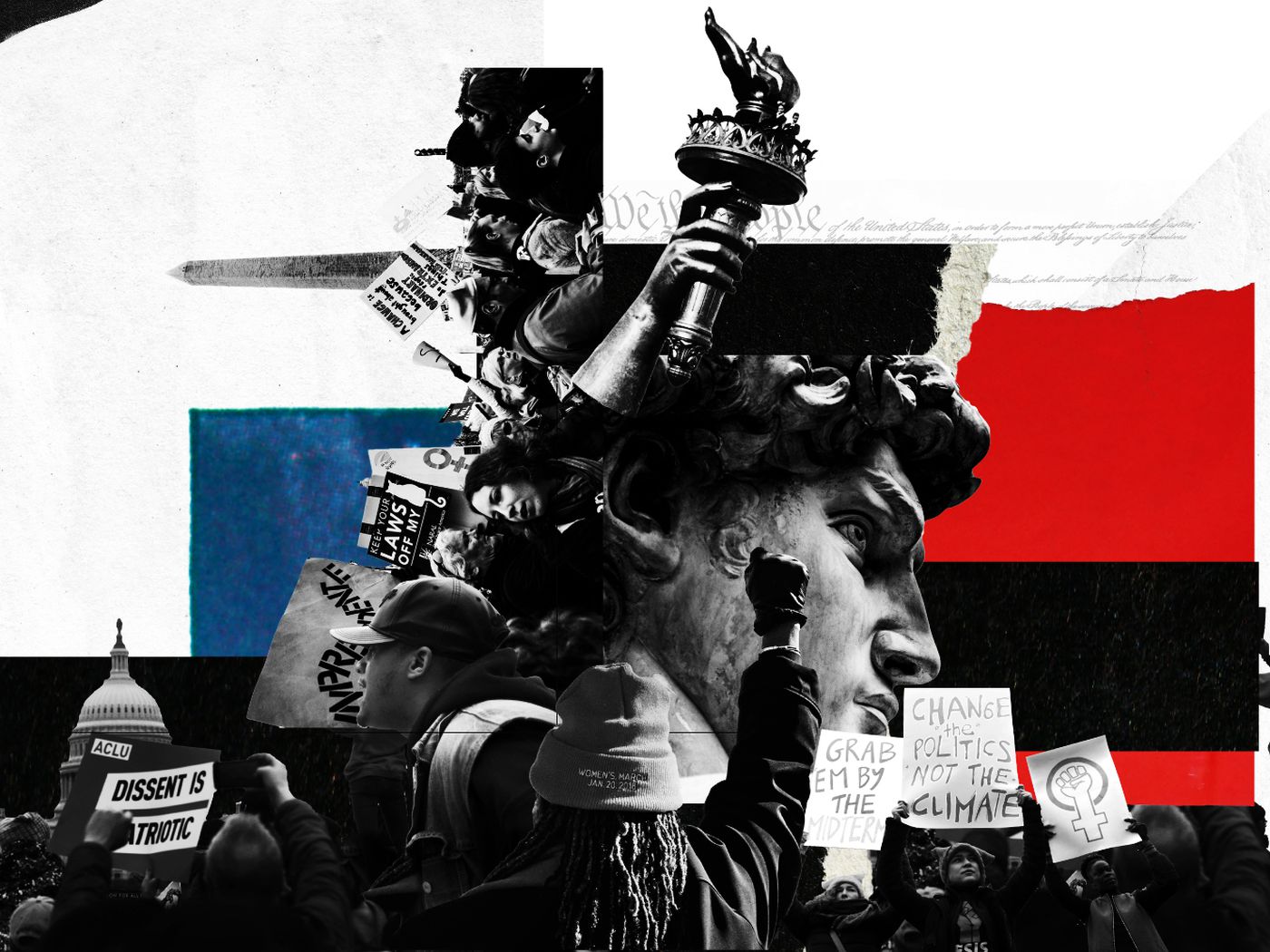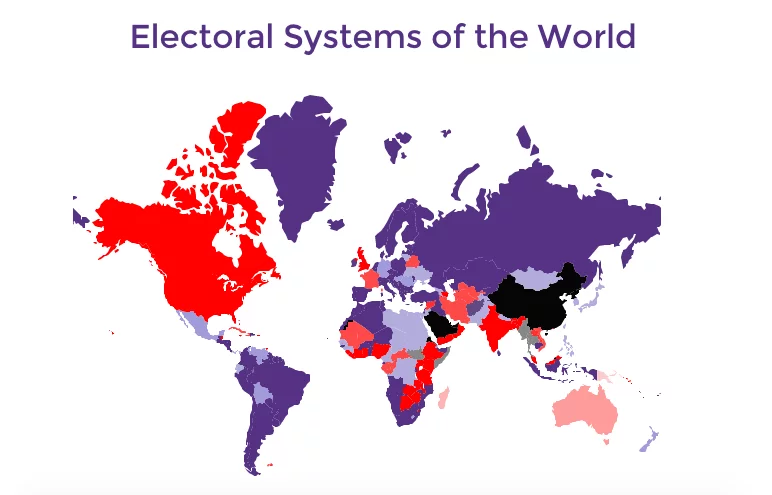Identity Politics Role in Discourse
Explore the influence of identity politics on political discourse and outcomes. Learn how identity politics shape the political landscape

The Impact of Identity Politics on Political Discourse and Outcomes
In an era characterized by rapid globalization, ever-evolving societal norms, and increased access to information, identity politics has emerged as a defining force in governance and politics worldwide. This phenomenon has not only shaped the way political news is disseminated but also influenced political discourse and outcomes in the United States and across the globe. In this comprehensive exploration, we delve into the multifaceted role of identity politics and its profound impact on contemporary state and world politics, as well as upcoming political events, political campaign strategies, and international political news.
Understanding Identity Politics
Identity politics is the practice of basing political beliefs and actions on social categories such as race, gender, ethnicity, religion, sexual orientation, and other aspects of an individual's identity. It has gained prominence in recent decades, as marginalized groups have sought recognition, representation, and rights. Identity politics has ushered in a new era of political engagement, transforming the way governance and politics are conducted worldwide.
Identity Politics in US Political News
In the United States, identity politics has played a pivotal role in shaping political discourse and outcomes. The recognition of marginalized identities has led to the formation of diverse interest groups and movements. Issues related to civil rights, gender equality, LGBTQ+ rights, and racial justice have become central themes in US political news.
The influence of identity politics is especially evident in election campaigns. Candidates are now compelled to address the concerns of various identity-based constituencies, thus altering political campaign strategies. As a result, political news today often features debates and discussions on topics related to identity, further amplifying the impact of identity politics on the American political landscape.
Identity Politics in State and World Politics
Beyond the United States, identity politics has global implications. It has affected state and politics in various countries, leading to shifts in power dynamics, governance structures, and policy decisions. The rise of nationalist movements, fueled by identity-based grievances, has reshaped international political news.
State and politics worldwide are navigating the complexities of identity politics, as nations grapple with issues of multiculturalism, separatism, and ethnic conflict. This has implications not only for internal governance but also for international relations. World politics news frequently highlights identity-driven conflicts and the challenges they pose to global stability.
Identity Politics and Upcoming Political Events
The influence of identity politics extends to upcoming political events, with elections and referendums often hinging on identity-related issues. Political parties and candidates must carefully craft their platforms and political campaign strategies to appeal to a diverse electorate. Understanding the nuances of identity politics is crucial for success in these events.
Moreover, identity politics has the potential to shape the agendas of upcoming political events. Movements advocating for the rights of marginalized groups can lead to policy changes, legislative reforms, and increased representation, all of which have far-reaching consequences for governance and politics.
Political Campaign Strategies in the Age of Identity Politics
In the age of identity politics, political campaign strategies have evolved significantly. Candidates must navigate a delicate balance between appealing to their base and reaching out to diverse identity-based constituencies. Messaging and policy proposals are scrutinized through the lens of identity, making it imperative for campaigns to be sensitive to these concerns.
Additionally, social media and digital communication have amplified the influence of identity politics in political campaign strategies. Candidates and political parties use online platforms to connect with specific identity groups, mobilize supporters, and respond to real-time developments, as seen in political news today.
The Challenges and Controversies Surrounding Identity Politics
While identity politics has undeniably reshaped political discourse and outcomes, it is not without its challenges and controversies. Critics argue that the emphasis on identity can lead to polarization, exclusion, and an oversimplification of complex issues. It's important to explore these challenges to gain a more nuanced understanding of the role of identity politics in governance and politics.
Polarization and Fragmentation
One of the major criticisms of identity politics is that it can contribute to political polarization. When political discourse is centered around identity-based grievances and demands, it can create an "us vs. them" mentality, making it difficult to find common ground and compromise. This polarization can hinder effective governance and lead to gridlock in legislatures.
Moreover, identity politics can sometimes fragment larger social and political movements. Divisions within identity groups, based on differences in ideology or strategy, can weaken the overall impact of these movements. This fragmentation is a challenge that activists and politicians must navigate in the pursuit of their goals.
Exclusivity and Identity Hierarchy
Another concern is that identity politics can inadvertently foster exclusivity and competition among different identity groups. In some cases, there may be a perception of an identity hierarchy, where certain groups are seen as more marginalized or deserving of attention than others. This can lead to tensions within social justice movements and among advocates for various causes.
Furthermore, critics argue that identity politics can sometimes reduce individuals to a single aspect of their identity, oversimplifying the complex intersections of identity that people experience. This reductionism can be limiting and fail to address the full range of issues affecting individuals and communities.
Policy Challenges
Identity-based political movements often focus on issues related to representation and recognition. While these are essential aspects of social progress, there is also a need to address policy challenges in a comprehensive manner. Critics argue that an exclusive focus on identity can sometimes overshadow critical policy debates on issues such as healthcare, the economy, and foreign policy.
To address these challenges, there is a growing call for a more intersectional approach to identity politics. Intersectionality recognizes that individuals and communities have multiple dimensions to their identities, and it seeks to address the complex ways in which these intersect and impact people's experiences. An intersectional approach aims to build coalitions and alliances across various identity groups to address a broader range of social and political issues.
Identity politics has undoubtedly reshaped the landscape of governance and politics, influencing political discourse, campaign strategies, and outcomes in the United States and worldwide. It has empowered marginalized groups to demand recognition and rights, resulting in significant social progress. However, it is not without its challenges and controversies, including polarization, exclusivity, and policy limitations.
As identity politics continues to evolve, it is essential for political leaders, activists, and citizens to engage in thoughtful and inclusive discussions about its role in shaping our societies. Recognizing the complexities and nuances of identity-based movements and their impact on state and world politics is crucial for achieving meaningful social change while mitigating the potential drawbacks of polarization and exclusion. Balancing the pursuit of justice for marginalized communities with the broader policy challenges of our time will be a key task for those navigating the evolving landscape of governance and politics.
What's Your Reaction?
















